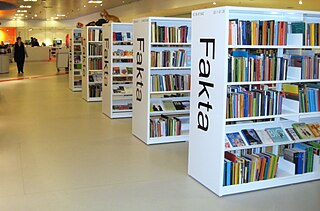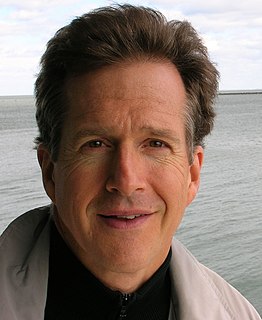In science and history, consilience is the principle that evidence from independent, unrelated sources can "converge" on strong conclusions. That is, when multiple sources of evidence are in agreement, the conclusion can be very strong even when none of the individual sources of evidence is significantly so on its own. Most established scientific knowledge is supported by a convergence of evidence: if not, the evidence is comparatively weak, and there will not likely be a strong scientific consensus.

In philosophy, empiricism is a theory that states that knowledge comes only or primarily from sensory experience. It is one of several views of epistemology, along with rationalism and skepticism. Empiricism emphasizes the role of empirical evidence in the formation of ideas, rather than innate ideas or traditions. However, empiricists may argue that traditions arise due to relations of previous sensory experiences.

Falsifiability is a standard of evaluation of scientific theories and hypotheses that was introduced by the philosopher of science Karl Popper in his book The Logic of Scientific Discovery (1934). He proposed it as the cornerstone of a solution to both the problem of induction and the problem of demarcation. A theory or hypothesis is falsifiable if it can be logically contradicted by an empirical test that can potentially be executed with existing technologies. Popper insisted that, as a logical criterion, it is distinct from the related concept "capacity to be proven wrong" discussed in Lakatos's falsificationism. Even being a logical criterion, its purpose is to make the theory predictive and testable, thus useful in practice.

The scientific method is an empirical method of acquiring knowledge that has characterized the development of science since at least the 17th century. It involves careful observation, applying rigorous skepticism about what is observed, given that cognitive assumptions can distort how one interprets the observation. It involves formulating hypotheses, via induction, based on such observations; experimental and measurement-based testing of deductions drawn from the hypotheses; and refinement of the hypotheses based on the experimental findings. These are principles of the scientific method, as distinguished from a definitive series of steps applicable to all scientific enterprises.

Philosophy of science is a branch of philosophy concerned with the foundations, methods, and implications of science. The central questions of this study concern what qualifies as science, the reliability of scientific theories, and the ultimate purpose of science. This discipline overlaps with metaphysics, ontology, and epistemology, for example, when it explores the relationship between science and truth. Philosophy of science focuses on metaphysical, epistemic and semantic aspects of science. Ethical issues such as bioethics and scientific misconduct are often considered ethics or science studies rather than the philosophy of science.

A fact is something that is true. The usual test for a statement of fact is verifiability, that is whether it can be demonstrated to correspond to experience. Standard reference works are often used to check facts. Scientific facts are verified by repeatable careful observation or measurement by experiments or other means.
Scientism is the opinion that science and the scientific method are the best or only objective means by which people should determine normative and epistemological values.
In philosophy of science and in epistemology, instrumentalism is a methodological view that ideas are useful instruments, and that the worth of an idea is based on how effective it is in explaining and predicting phenomena. According to instrumentalists, a successful scientific theory reveals nothing known either true or false about nature's unobservable objects, properties or processes. Scientific theory is merely a tool whereby humans predict observations in a particular domain of nature by formulating laws, which state or summarize regularities, while theories themselves do not reveal supposedly hidden aspects of nature that somehow explain these laws. Instrumentalism is a perspective originally introduced by Pierre Duhem in 1906.
The science wars were a series of intellectual exchanges, between scientific realists and postmodernist critics, about the nature of scientific theory and intellectual inquiry. They took place principally in the United States in the 1990s in the academic and mainstream press. Scientific realists argued that scientific knowledge is real, and accused the postmodernists of having effectively rejected scientific objectivity, the scientific method, empiricism, and scientific knowledge. Postmodernists interpreted Thomas Kuhn's ideas about scientific paradigms to mean that scientific theories are social constructs, and philosophers like Paul Feyerabend argued that other, non-realist forms of knowledge production were better suited to serve people's personal and spiritual needs.

Postpositivism or postempiricism is a metatheoretical stance that critiques and amends positivism and has impacted theories and practices across philosophy, social sciences, and various models of scientific inquiry. While positivists emphasize independence between the researcher and the researched person, postpositivists argue that theories, hypotheses, background knowledge and values of the researcher can influence what is observed. Postpositivists pursue objectivity by recognizing the possible effects of biases. While positivists emphasize quantitative methods, postpositivists consider both quantitative and qualitative methods to be valid approaches.
Elias Abdel Kuder Alsabti (1954-1990) was an Iraqi medical researcher who was exposed for scientific fraud.
The history of scientific method considers changes in the methodology of scientific inquiry, as distinct from the history of science itself. The development of rules for scientific reasoning has not been straightforward; scientific method has been the subject of intense and recurring debate throughout the history of science, and eminent natural philosophers and scientists have argued for the primacy of one or another approach to establishing scientific knowledge. Despite the disagreements about approaches, scientific method has advanced in definite steps.
Objectivity in science is an attempt to uncover truths about the natural world by eliminating personal biases, emotions, and false beliefs. It is often linked to observation as part of the scientific method. It is thus intimately related to the aim of testability and reproducibility. To be considered objective, the results of measurement must be communicated from person to person, and then demonstrated for third parties, as an advance in a collective understanding of the world. Such demonstrable knowledge has ordinarily conferred demonstrable powers of prediction or technology.
In academic publishing, the least publishable unit (LPU), also smallest publishable unit (SPU), minimum publishable unit (MPU), loot, or publon, is the smallest measurable quantum of publication, the minimum amount of information that can be used to generate a publication in a peer-reviewed venue, such as a journal or a conference. The term is often used as a joking, ironic, or derogatory reference to the strategy of artificially inflating quantity of publications.
Inductivism is the traditional and still commonplace philosophy of scientific method to develop scientific theories. Inductivism aims to neutrally observe a domain, infer laws from examined cases—hence, inductive reasoning—and thus objectively discover the sole naturally true theory of the observed.

William J. Broad is an American science journalist, author and a Senior Writer at The New York Times.

Nicholas Michael Landon Wade is a British author and journalist. He is the author of numerous books, and has served as staff writer and editor for Nature, Science, and the science section of The New York Times.

The following outline is provided as a topical overview of science; the discipline of science is defined as both the systematic effort of acquiring knowledge through observation, experimentation and reasoning, and the body of knowledge thus acquired, the word "science" derives from the Latin word scientia meaning knowledge. A practitioner of science is called a "scientist". Modern science respects objective logical reasoning, and follows a set of core procedures or rules to determine the nature and underlying natural laws of all things, with a scope encompassing the entire universe. These procedures, or rules, are known as the scientific method.
Epistemology or theory of knowledge is the branch of philosophy concerned with the nature and scope (limitations) of knowledge. It addresses the questions "What is knowledge?", "How is knowledge acquired?", "What do people know?", "How do we know what we know?", and "Why do we know what we know?". Much of the debate in this field has focused on analyzing the nature of knowledge and how it relates to similar notions such as truth, belief, and justification. It also deals with the means of production of knowledge, as well as skepticism about different knowledge claims.








